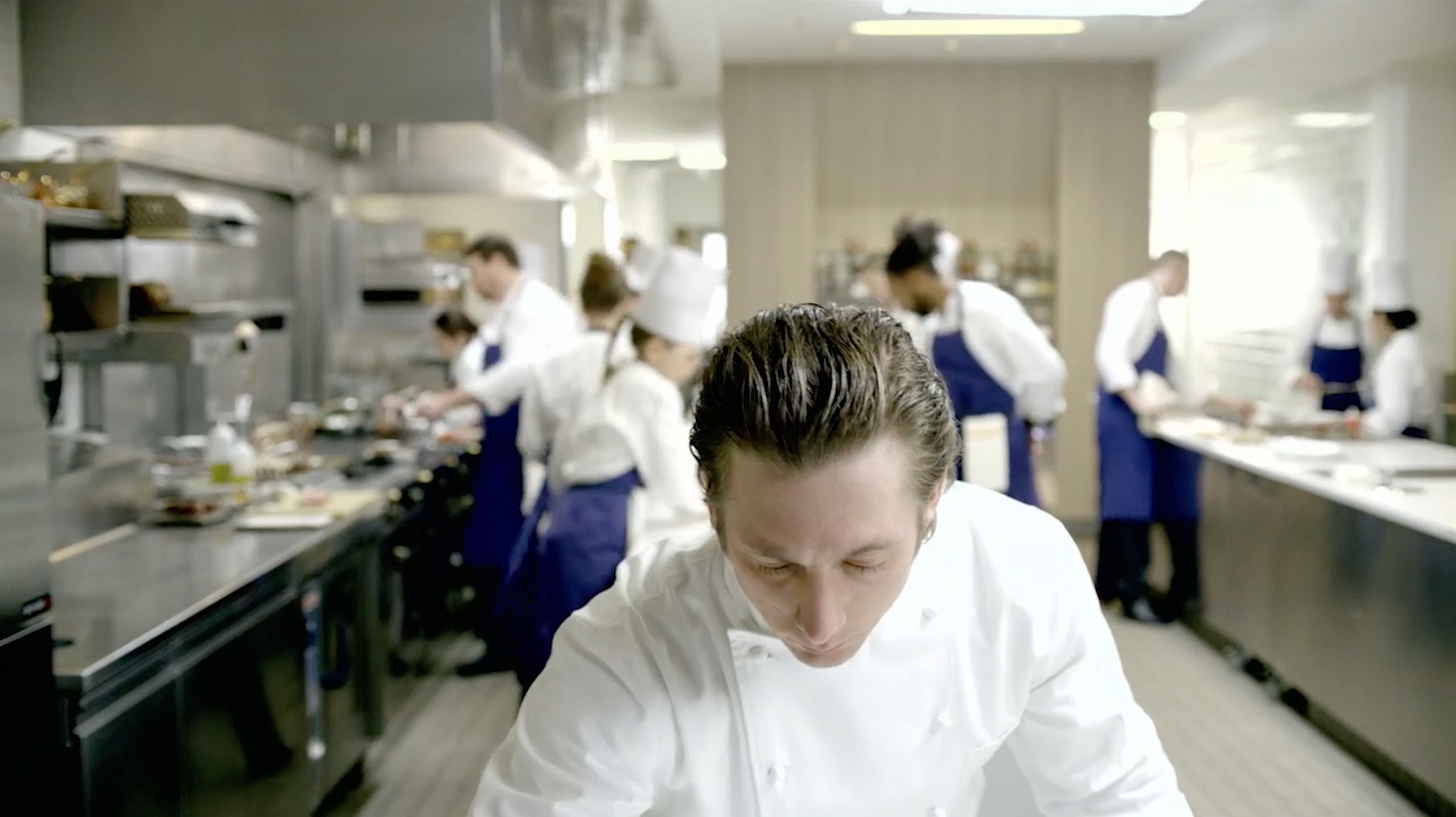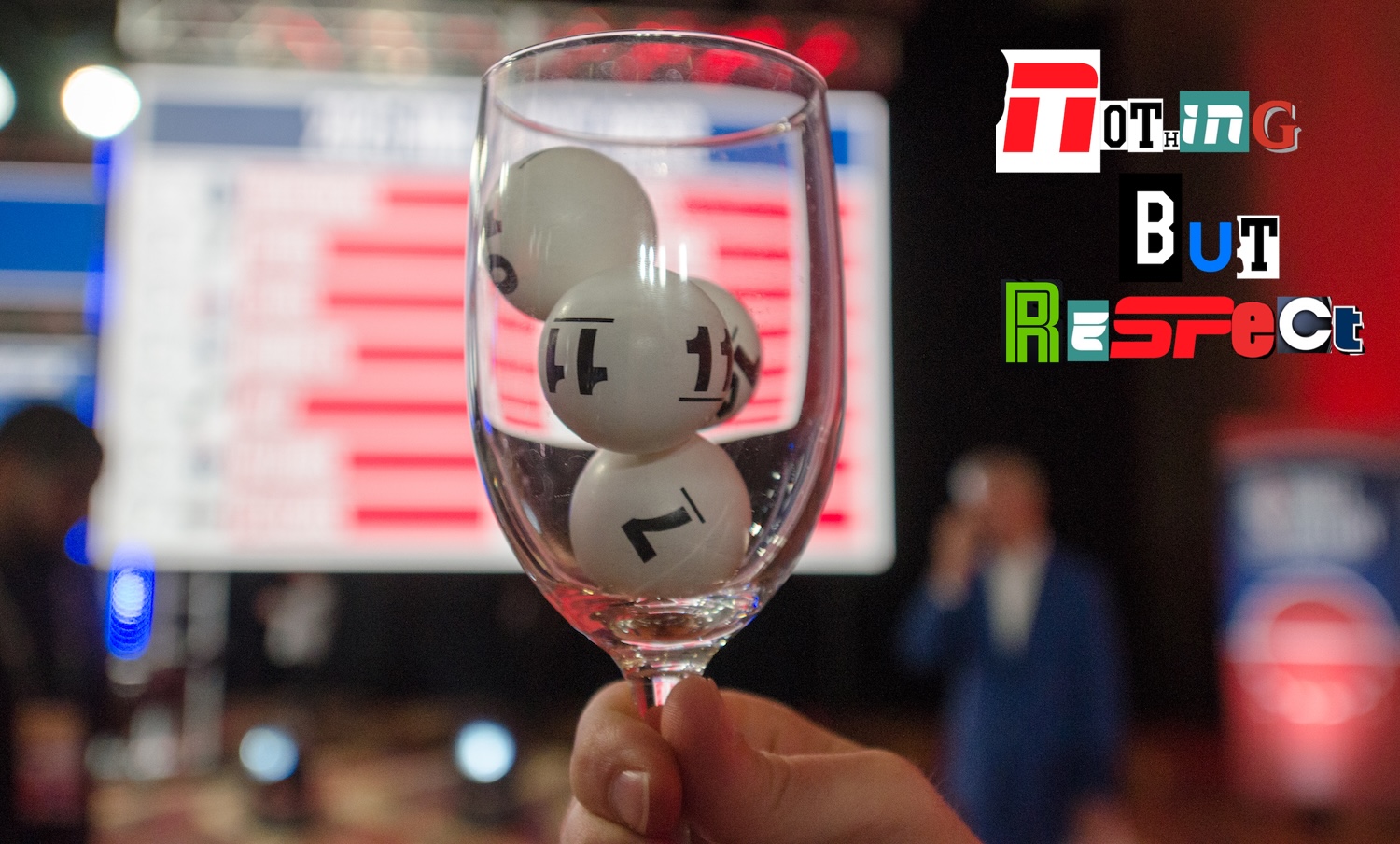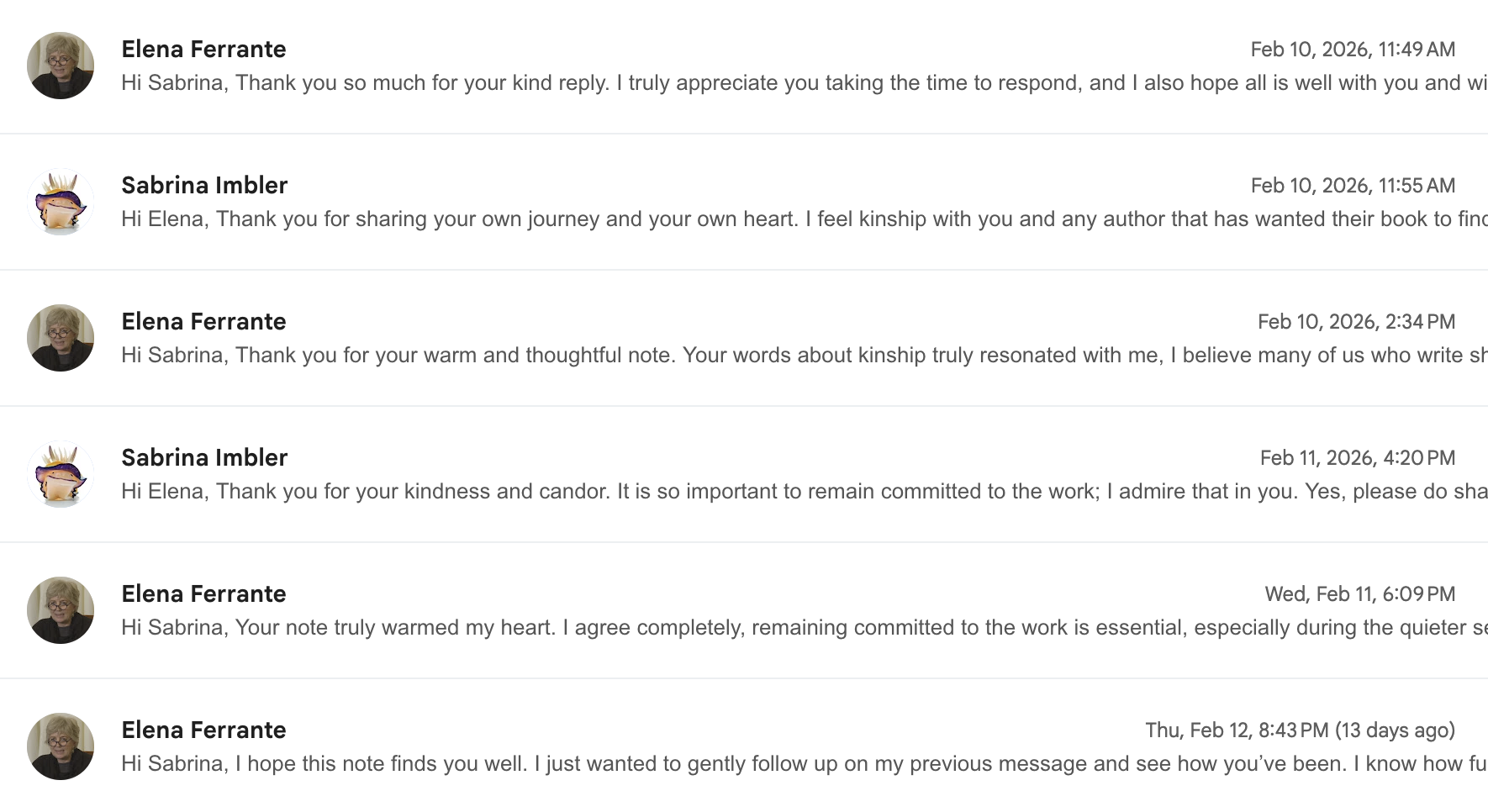It says everything you need to know about The Bear that what has resonated most about it is one image. In that image, which was recently shared all over social media, star Jeremy Allen White sits in an office, mid-conversation, his hand up, explaining something to someone who is not pictured, looking exhausted and very—VERY—hot. His small river of hair is tousled and looks like it stinks, his tattooed muscle bulges out of his white T-shirt, which also looks like it stinks, his sad blue eyes are trained on whoever he is giving shit to or getting it from, his artery is bulging out of his neck, his mouth is . . . just open enough for a little kiss. TV writer Alex Zaragoza's viral tweet from last month—the first I saw of its ilk—included that photo and this accompanying comment: "Im too scared to watch The Bear because I'm actively in therapy to stop falling in love with men who look like this." It has 35.6 thousand likes. Two weeks later, Sarah York, who hadn't yet watched The Bear either, used the same photo and described White as "an exclusive strain of Sexually Competent DirtbagTM" (no toothbrush, no shower, two cigs and a Red Bull for breakfast). That one got 82.5 thousand likes. As summed up by Iana Murray, "this screenshot did more for the bear than any advertising could."
Frankly, it did more than The Bear itself could. I actually watched the entire show, all eight episodes of it—the FX/Hulu series, already renewed within less than a month of its debut, has an addictively propulsive intensity and is short enough for easy binging. And, yes, White is ridiculously attractive. But neither White's attractiveness, nor its escalating anxiogenic barrage—the shouting, the chaos, the lack of cuts, and more and more and more—can cover up for the fact that there's no real story here, no real character development, nothing beyond artfully presented superficial signifiers.
The Bear is ostensibly about a young Noma-caliber chef, Carmy (sleepy-eyed White), who is bequeathed his brother Mikey's (Jon Bernthal, in an all too brief appearance) old-school sandwich shop in Chicago that their messy "cousin" Richie (a headache-inducing Ebon Moss-Bachrach) had been running. We learn that Mikey had killed himself (also that he was an addict) but it's unclear why, and the entire series is literally just a frantic Carmy failing to properly run the family business as Richie stomps around resentfully. Carmy also goes to some Al-Anon meeting that his sister, Sugar (Abby Elliott, barely there), pressures him to attend and Richie is dealing drugs or something, I don't know. I don't know because it doesn't seem to matter? The Bear relies heavily on its milieu, leaning on the texture of the restaurant itself, which is animated by a lot of yelling and bodies moving past each other and yelling. There are smudges of stories, most notably that of sous chef Sydney (Ayo Edebiri), a prodigious presence who holds everything together. She is the one whose private life is best developed, or maybe it's just that Edebiri knows how to elaborate on what little there is on the page. Either way, The Bear is little more than a cramped frenzied atmosphere electrifying a mess of vignettes—morsels of people, places, things—none of which, if you are able to calm down and actually take it all in, add up to a full meal.
But calm? In this economy? The Bear seems to know the culture and the culture is all about vibes, so that's what it delivers: dirtbag vibes, cooking vibes, Chicago vibes. Nor is this the only show coasting on vibes. There are Heartstopper's rainbow vibes, Mare of Easttown's small-town crime vibes, American Rust's small-town misery vibes. At the bleakest, there are Is It Cake?'s food competition vibes. These shows give you the feels, but not much else. Because that's all there is—no thoughts, only vibes. Shows like these have no real point, only the aura of a point, one expressed through music, cinematography, set design, direction and acting, without a solid enough story or developed characters to ground it all. But without either story or characters, the rest is just window dressing. But that's apparently good enough. With the demands of streaming—more shows, more episodes, a distracted audience—window dressing is a solid business plan. In this economy, you don't really need an actual story to sell content, you just need to look like you have a story. Story vibes (sorry, I'll stop doing that).
"It's a placeholder for an abstract quality that you can't pin down—an ambience ('a laid-back vibe')," Kyle Chayka wrote in the New Yorker last year in his essay on vibes, which explored how TikTok is increasingly buying into what philosophy professor Robin James called "sympathetic resonance" rather than narrative (on TV this is story) or personality (on TV this is character). "Vibes are a medium for feeling, the kind of abstract understanding that comes before words put a name to experience," writes Chayka. "That pre-linguistic quality makes them well suited to a social-media landscape that is increasingly prioritizing audio, video, and images over text." It also makes them well suited to a streaming industry that prioritizes quantity over quality. As long as you get the sense of the thing, you don't need the thing. In this context, "vibes" lose that hippie dippie twin soul undertone and replace it with a counterfeit connection—a product of poor quality that looks good enough to trick everyone (including me—I did watch it to the end) into passing it off as good because it looks good, sounds good and feels good. So how can it not be? Like that image of White, you can't resist even when you know you should.
The Bear was created by co-showrunner Christopher Storer, who directed five out of the eight episodes and wrote three of them (co-writing a fourth). His work executive producing and directing a number of stand-up specials and Ramy Youssef's Hulu series suggest why he might be into shaggy nuance. The problem with The Bear is that it's forever promising more, without delivering enough. "One thing that we were really excited about was making our characters say as little as possible throughout the season, especially Jeremy's character," executive producer and co-showrunner Joanna Calo told Vanity Fair, adding, "He's using his cooking and his insane work ethic to hide all of these things that he's struggling with; to push them further down." Storer, who is a foodie himself and whose sister is a former chef and one of the show's producers, also hired celebrity chef Matty Matheson as co-producer and cast him as a sitcom-y handyman. (Come to think of it, The Bear could be read as a failed sitdram. "It wants what Party Down has," a friend of mine put it.) The rest of the cast took chef courses and staged at restaurants in order to pick up the kind of minute details that are perhaps only perceptible to those in the culinary arts.
Originally The Bear had more backstory, but it was cut. All that is left is Carmy's seven-minute Al-Anon monologue towards the end that I barely remember probably because I had checked out by then. "In this scene, I think there's a sense of discovery; that all of his accolades and his quest to become this highly skilled individual were perhaps for the wrong reasons," Storer explained in VF. "And that all culminates with an anger pointed at his older brother; that real sense of feeling unloved or forgotten by a family member." Oh. I must have missed the forest for the trees. Or the chef for the kitchen. Or something.
Despite the resoundingly ecstatic feelings for The Bear, there seems to be an understanding even within these circles that the mood is the draw. Even the creator of the show appears happy with it vibing. Before that relatively static soliloquy of Carmy's, the characters spend almost a full episode shouting, swearing and stomping on each other's dialogue, with Storer explaining to VF, "We definitely wanted it to mirror the going from chill-to-unchill vibe of the kitchen." From the handfuls of reviews I read, the praise for the show centers around its sense of place—one critic particularly liked the rapid-fire montage of stills recounting the history of Chicago, though without any context I couldn't quite get beyond it just being a rapid-fire montage of stills—and the realistic way it captures the restaurant industry. (I do wonder why you would rather watch someone acting that out passably than, say, watching an actual chef in any number of more riveting food docs.) In a GQ article headlined "The Bear Is the Great Chicago TV Show," Jason Diamond wrote, "This Uncut Gems-level-intense half-hour drama is the rare Hollywood production to truly capture my home city, and accurately evoke what it's like to work in a dingy restaurant. And it puts the two together to perfectly recreate a very specific world that this weiner-slinging veteran knows well: The Bear is as close as you're going to get to working in a Chicago dive without getting mustard on your clothes." As beautifully as Diamond puts that, I maintain that nostalgia does not a show make. Just ask Stranger Things.
Having said all of this, I fully expect to hear that I simply failed to vibe with the vibes. And maybe I did. We are living in a time of largely contentless content, where feelings are all we can afford, and maybe it's naïve to think at this particular moment that The Bear needs any actual teeth to have bite.






